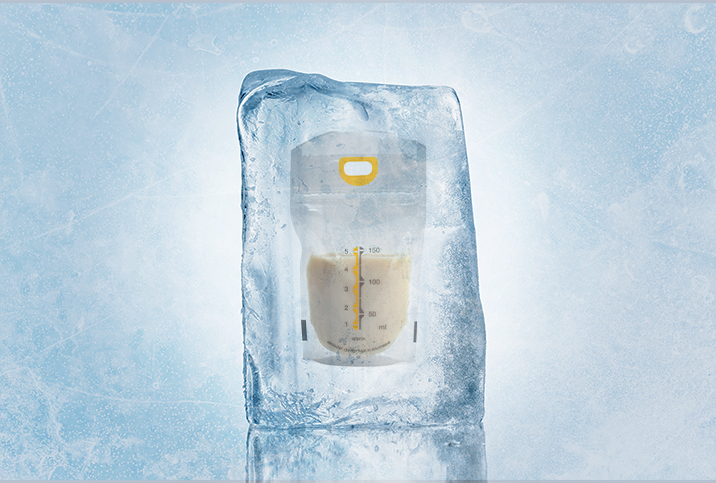Pregnancy & Postpartum Life: Myths & Misconceptions

There is perhaps no developmental process more important to human existence than pregnancy and the first six months with a newborn. Without it, well, you know, there’d be no human race.
Given that, why does so much misinformation about this amazing process still exist?
One reason, of course, is that one-half of the population is not physically capable of getting pregnant. Another reason might be because no pregnancy is exactly the same as another, and that also applies to women who get pregnant more than once.
In the interest of creating a solid base of knowledge regarding human gestation and the period immediately following birth, we have gathered the information necessary to debunk five popular myths that persist about pregnancy and seven myths about postpartum life.
Pregnancy
Myth: All pregnancies are relatively similar.
Reality: Whether a pregnancy is easier or more difficult depends on the woman and, in some cases, the baby. Many women who have experienced a relatively smooth pregnancy in the past can have difficulties with future pregnancies.
While pregnancy certainly involves moments of beauty, it can also be really demanding. Pregnancy brings with it a whirlwind of emotions, mood swings, muscle cramps, backaches, swollen feet and cravings. It can be stressful to keep up with all of the medical appointments and prenatal vitamins, and navigating work and life, all while your body works overtime to create another human life. For this reason, it's important for pregnant women to have realistic expectations about what pregnancy can be like and to lean on their support system during this sensitive time.
Myth: I shouldn't have sex while I'm pregnant because it can hurt the baby.
Reality: Fortunately, this is 100 percent untrue, thanks to basic anatomy. The fetus is protected by a sac of fluid that is further protected by the uterus' thick layers of muscle and tissue. According to medical experts, having sex won't affect the baby in any way, as long as you have no history of bleeding or premature labor, and you practice safe positions that don't put you at risk of falling or otherwise hurting yourself. Always check with your OB-GYN if you've had any complications that could make sex risky.
Myth: Pregnant women cannot drink coffee.
Reality: According to research, you should avoid coffee during the first trimester, but after that, it's OK to have a cup of Joe every now and then. In fact, the American College of Obstetricians and Gynecologists reports that pregnant women can safely consume up to one 12-ounce cup of coffee a day. It is important to follow up the cup of coffee with a glass of water since the caffeine in coffee is a diuretic and you want to stay hydrated.
Myth: Staying moisturized will prevent stretch marks.
Reality: This simply isn't the case, though many women mistakenly believe that as long as they stick to a strict cocoa butter regimen, they will avoid developing stretch marks during pregnancy. When it comes down to it, research shows that a woman's likelihood of getting stretch marks is a matter of genetics. Moisturizing can certainly help keep you comfortable as your belly grows, but the stretch marks are either going to happen or not based on your genes.
Myth: It's OK to have a single glass of wine every now and then while I'm pregnant.
Reality: This is a potentially harmful myth. Medical experts agree that it's not safe for pregnant women to consume alcohol at all. Drinking increases the risk that your fetus will suffer developmental damage. The best bet is to skip alcohol altogether, because there is no safe threshold in preventing fetal alcohol syndrome.
Women have so much to learn when they're pregnant that it can be overwhelming. Start with these five simple debunked myths and take in new topics piece by piece, day by day. And stay in touch with your OB-GYN and eat a healthy diet.
Postpartum life
Myth: Postpartum depression won't affect my baby.
Reality: About 13 percent of new moms develop postpartum depression, which, if left untreated, can pose risks to the baby.
Mothers experiencing postpartum depression are more likely to be inconsistent with child care, send mixed signals of affection or even respond negatively to a baby's demands. This can cause babies to have insecure attachment, toddlers to struggle more with social interaction, and school-age children to have behavioral problems, anxiety or ADHD.
However, postpartum depression is treatable with appropriate medications, therapy and social support, and getting to the problem early and consistently can minimize the risks. Notably, research indicates antidepressant use by new mothers does not negatively impact children during pregnancy or through breastfeeding, but make sure you discuss this with your doctor if you have concerns.
Myth: If I breastfeed, I'll get back to my pre-baby weight.
Reality: Along with other benefits, breastfeeding may support your weight loss, using energy consumed and fat stored to generate milk for your baby. A study carried out in 2014 reported women who breastfed for at least three months were 6.1 percent more likely to return to or below pre-pregnancy weight.
However, breastfeeding alone is no guarantee. One survey found only 40 percent of moms returned to their pre-pregnancy weight within two years. Another study carried out in 2015 reported 75 percent of women were still heavier a year out than they were pre-pregnancy.
The truth is bodies change significantly during pregnancy and childbirth, and most women's figures never go back to exactly what they were before. And that's OK!
Myth: Only moms can experience postpartum mental health issues.
Reality: Actually, 1 in 10 new dads get postpartum depression, and 18 percent experience an anxiety disorder within the first year. Parents need to be aware that the addition of a newborn can affect the mental health of one or both of them. Make sure someone's paying attention to your needs and listening to your concerns during this sometimes tumultuous time.
Myth: 'Postpartum' is only a few weeks.
Reality: Technically speaking, "postpartum" refers to the first six weeks after a baby's birth. But the postpartum period, and the many changes new parents may experience during it, lasts much longer. Although your body may return to its pre-pregnancy state within six to eight weeks, the rest of you may not.
The "delayed postpartum phase" can last up to six months or more. During this time, new moms (and dads) may still be dealing with mental health and emotional changes, excess weight, and problems with the genitourinary system (the organs of the reproductive and urinary systems). Keep in touch with your healthcare provider and develop a support system, because these issues can take months, even years, to resolve.
Myth: I can boost my iron by eating my placenta.
Reality: While consuming your baby's placenta (placentophagy) after childbirth is purported to have a host of benefits—boosting micronutrient levels, preventing postpartum depression, reducing bleeding, boosting milk production and energy—research does not support such claims.
In fact, eating your baby's placenta can pose health risks because it may contain harmful bacteria or viruses.
Myth: I'll be interested in sex any day now.
Reality: Just as the postpartum period doesn't really end at six weeks, changes in libido and interest in sex also may not instantly get back to normal.
Research indicates that most women start feeling sexual desires by week three or four, and many begin masturbating or enjoying oral sex with a partner by week six. But many women may not feel comfortable with oral sex or having intercourse until much later.
A study of 304 women found 15 percent of them hadn't resumed sex at three months postpartum. There's no right or wrong timeline for getting back in the sack—just do what feels right.
Myth: I'll immediately fall in love with my baby.
Reality: This is a common and stressful misconception for new moms (and dads).
Having a baby fills your world with many emotions, some positive and some not. The reality is an estimated 30 percent of new mothers don't instantly adore their baby.
Feelings toward a newborn vary greatly, and none of them are wrong or abnormal. If you're concerned, talk to your doctor about how you're feeling, but be patient. You can still be a great parent during this confusing time, and no, there's nothing wrong with you. You'll settle into a groove and find your own special ways to connect with your newborn, and that motherly love you're expecting will come soon.


















